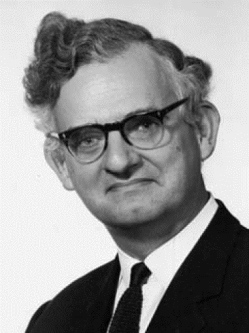 “And the gentleman in the Chair, who looks a bit like Ronnie Barker, is Professor Sir James Lighthill FRS, Provost of UCL” whispered Miss Crispin, Secretary to Committee A, as she introduced me to the upper chamber of (as it then was) the Committee of Vice-Chancellors & Principals (CVCP), where I had just been taken on to promote UK universities’ scientific research.
“And the gentleman in the Chair, who looks a bit like Ronnie Barker, is Professor Sir James Lighthill FRS, Provost of UCL” whispered Miss Crispin, Secretary to Committee A, as she introduced me to the upper chamber of (as it then was) the Committee of Vice-Chancellors & Principals (CVCP), where I had just been taken on to promote UK universities’ scientific research.
“He’s a genius, you know!” she added, reverentially.
Lighthill, Hawking’s predecessor as Lucasian Professor of Mathematics, was certainly no slouch - a world expert on aeroacoustics and fluid dynamics, who helped design Concorde. This was what university bosses used to be like – great men (sadly, all men then), with minds like steel traps, rounding off distinguished academic careers; all but unknown to those below them, their numinous presence at the helm lending legitimacy to the whole enterprise. These were folk, I thought then, one needn’t feel soiled working for.
‘How different from the current breed’, readers may reflect - as I did, ten years or so later (despite the presence of a few notable exceptions) when I left the CVCP for the Society. But then, unworthiness in high office is a sad feature of modern life, which favours those with a taste for gold, but no idea how to find it - as our second feature may suggest.
This issue is dominated by two great men and one great woman – people whose minds found gold, through understanding what others did not. If they sought greatness, they hardly needed to; it sought them. Indeed, it used to be said (only half-jokingly) that the only good reason for advertising Vice-Chancellorships was to eliminate anyone who applied. Like being Speaker of the House of Commons, you’re not supposed to crave the bauble. You should be called, and put up a token fight (at least) against ‘the slippery slope of public life’.
Sir James finally succumbed in 1998, rupturing his mitral valve during an attempt to swim, once too often, around the Island of Sark. The qualities that make one a great scientist - or mineral prospector - need not necessarily fit one to all of the many and various demands that life exacts. Genius, a much overused term, should be reserved for something one might have, but not be - at least, not until death has made you safely invulnerable.
The rest of us may content ourselves that there is more to life than ‘genius’ – and more yardsticks than one. Even glorified personnel managers in grey shoes have their place, and maybe also their use.
DR TED NIELD NUJ FGS, EDITOR